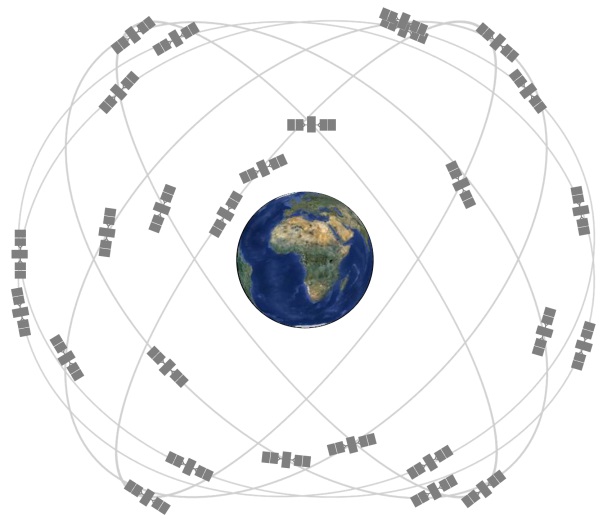The Pentagon voiced its concern this week that the U.S. GPS navigation capabilities could be held at risk by increasingly capable Chinese anti-satellite capabilities. But it is worth noting that while individual satellites might be threatened, disabling the system and knocking out navigation services is much harder.
Gen. William Shelton, head of Air Force Space Command, testified Wednesday at a Senate Armed Forces Subcommittee on Strategic Forces hearing. He responded affirmatively to questions by Senator Joe Donnelly, agreeing that if China is conducting tests targeting high altitude satellites it could “significantly” affect “our GPS capabilities.”
Unclassified Senate hearings are not ideal for elaborating on the nuances of subjects, so it’s useful to unpack what it means to affect the GPS system in a significant way, as this comes up frequently.
China has demonstrated hit-to kill anti-satellite technology, but hasn’t tried it on high-altitude satellites (no country has), although it has rockets that can reach up to and beyond geosynchronous orbits. However, questions about the nature of a high-altitude suborbital rocket flight last year has generated debate about whether it was related to extending China’s ASAT capabilities to higher altitudes.
Of course, having relevant pieces of technology does not equal a reliable or useable military weapon, but it’s still prudent to ask if China (or another actor) had the capability to destroy or degrade a GPS satellite, how bad is that?
Robust Capability
GPS is a thoughtfully designed, robust system, and its service degrades very gradually as satellites are lost. The original system design used 24 satellites, keeping six in view from most places on the earth, but typically there are more in orbit. Currently, there are 32.
A user needs a minimum of four satellites in view if no other source of location or timing are available, but the accuracy increases as more satellites are visible. A large number of satellites need to be incapacitated just to bring the constellation size down to the minimum; to leave a user without sufficient coverage to get useable navigation data would require losing more. Coverage depends on geographic location, time of day, and the current constellation architecture (which can be modified in the face of a loss), but Geoff Forden gives an instructive example. An 18-satellite constellation (with the missing satellites chosen to give the most impact) would drop below the four-satellite visible minimum over Beijing for roughly two hours a day.
Details are important here—different missions will require different precision, etc.—but this illustrates that degrading GPS navigation capacity by incapacitating satellites is not a small task.
Adding to the difficulty of the task is the fact that the GPS satellites move with respect to the Earth, leaving only a few within reach, such as those overhead or nearby. The attacker would have to wait for other satellites to come into range or stage the attack from locations all over the globe. A disabling attack would be difficult and time-consuming—not instantaneous—giving the U.S. ample time to react. We go into a bit more detail on these points in a past blog post.
In fact, while Gen. Shelton’s remarks were the ones that made it into the newspaper, later in the hearing Douglas Loverro, Deputy Assistant Defense Secretary for Space Policy, pointed out these strengths of the GPS system:
GPS is somewhat of a disaggregated system. We call it distributed, many, many satellites, that if you lose one you don’t lose the capability. In fact, you could lose several and not lose it. That isn’t an invitation to lose any but it certainly makes it more resilient…
The bottom line is that anti-satellite weapons are a bad idea for many reasons, and the U.S. should work with other countries to keep them from being used. But a disabling attack on the GPS system is much more difficult than is sometimes assumed—in part because of smart planning of the system. That’s good policy, and that approach goes some way to making anti-satellite weapons not useful.

